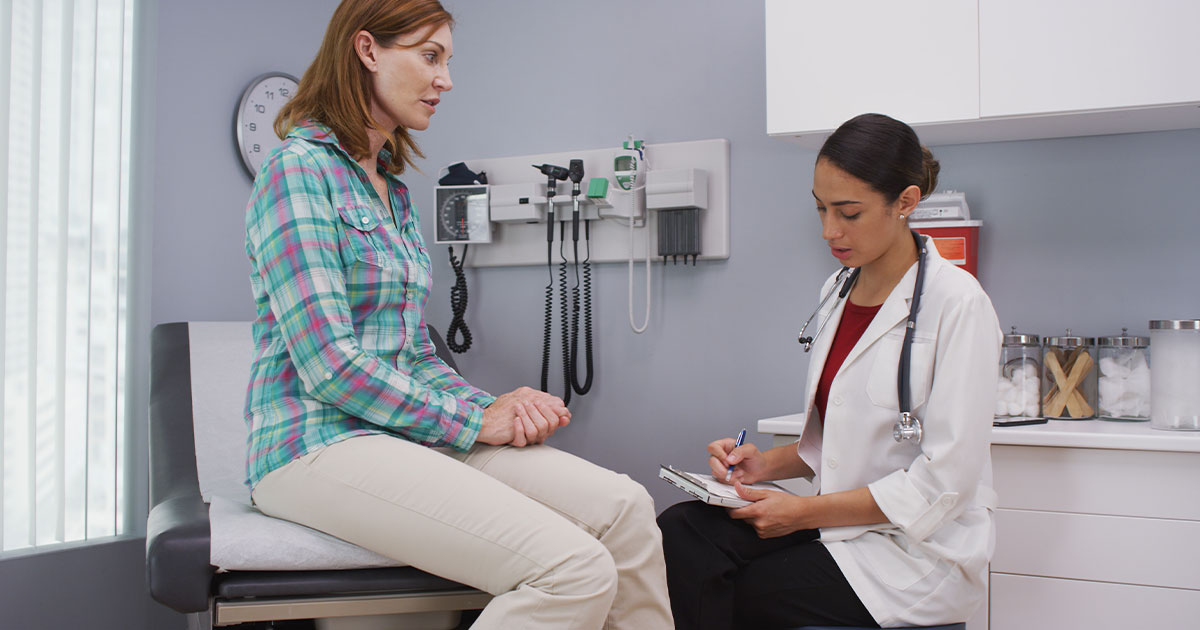On June 24, the U.S. Supreme Court overturned Roe v. Wade, which was established in 1973 and protected the constitutional right to an abortion in America. The ruling left many shaken, now faced with a reality that once seemed impossible.
However, Michigan might now be the first state to let voters decide the future of abortion rights in the state, as more than 750,000 signatures have been collected to put a constitutional amendment on the November 2022 ballot in order to prevent a 90-year-old state law (which makes abortion a felony, even in the case of rape or incest) from now taking effect.
To learn more about what women and those with a uterus should know moving forward, West Michigan Woman sat down with Nisha McKenzie PA-C, Owner and Founder of Women's+ Health Collective and AASECT Certified Sexuality Counselor, Sex Educator and Nationally Certified Menopause Practitioner.
West Michigan Woman: What does the overturn of Roe v. Wade mean for those with a uterus?
Nisha McKenzie: The overturn of Roe v. Wade means our federal government no longer protects the right to have an abortion. That's the simplest version of what it means. However, the term abortion, although often used as a trigger word, in medical terminology is much more encompassing and covers miscarriages (defined as spontaneous abortion) as well as the medical and surgical needs to care for the birthing parent immediately after or during a miscarriage. It means there is a lot of work to do to clarify what can and cannot be done for someone with a pregnancy either they or their body can't keep.
WMW: How do you see this affecting the type of care health providers are able to offer in the immediate/near future (pre-any potential amendments to Michigan's state constitution)?
NM: There could be a dramatic effect on the care that we are able to offer our patients. One of our largest healthcare systems in this area immediately put out a statement saying they had previously "allowed pregnancy termination for medical indications, such as when necessary to prevent serious risks to the woman's health or in situations where the fetus is not likely to survive," but that now they would operate under the state's 1931 law that does not allow abortion under almost any circumstance. They neglected to acknowledge the injunction making this law unenforceable for the time being—at least until this fall. They then printed a reversal of this policy and said they would actually continue performing medically necessary abortions.
If the largest healthcare system in our area is confused, with all their available attorneys, you might imagine how individual medical facilities and providers may be feeling. I've had colleagues tell me stories of patients in emergent and life-threatening situations in the immediate aftermath of the reversal but waiting on life saving care because attorneys needed to advise physicians on suitable actions. Many are still operating under fear of litigation, which most certainly affects how healthcare is delivered.
WMW: What questions do you suggest those with a uterus ask their health care providers right now?
NM: I suggest just being honest about your fears. Ask any questions that have crossed your mind, we want to hear them. We can't fully help unless we know what your concerns are. I've had patients ask me if the government is going to make me remove their IUD, if I'm going to have to reverse their tubal sterilization, if birth control will no longer be covered, if they could be prosecuted for not using remaining embryos after IVF, if they should delete their period apps, if they should just have their sterilization now even though they're not sure they're ready for the finality of that, if it is safe for them to even start to try to become pregnant, and some who just need a few moments to cry.
We are here to have these conversations with you. All questions are valid, and it's possible we may just sit in the unknown with you, but we can transparently give you all the information we do have.
WMW: What actions do you suggest those with a uterus consider taking in the coming weeks/months, depending on their own individual preferences for the future?
NM: Talk to your GYN provider about your options—let them know your wants and your uncertainties. Birth control is still available and free under the ACA. If you're considering a more reliable method, or a longer acting method, make an appointment and discuss all of the options so you can make a fully informed decision.
But as importantly, activate. Sustained activation has allowed some states to create new laws protecting reproductive rights. Educate yourselves and your loved ones. We can all learn more, so let's do that. Let's keep learning so we know what we can do to be sure our individual and constitutional rights are equal and protected. We do not have to remain willing to allow the biology of reproduction to dictate our autonomy.
Vote. Vote as if you're a survivor of sexual abuse, as if your life were dependent on a decision you weren't allowed to make, as if you don't know what your future might bring—not as in the usual scenarios you can think of, but as in the idea that there is a scenario you can't imagine. Those are the things we see as medical providers. The scenarios we can't imagine, because it's not safe for our psyche, for our mental health, to actually feel or imagine ourselves in those scenarios.
WMW: Any words of hope or comfort you can offer to those who may feel helpless right now?
NM: Your actions have mattered and continue to matter. Many attempts at reversing healthcare rights for marginalized people have been thwarted already over recent years. The ACA, while not perfect, is still in place and allows for free contraception because you activated. Keep up the good work, double down, get even more serious, and encourage your friends to do the same. Your voices have mattered and you are worth it.
WMW: Anything additional you'd like to add?
NM: I want to bring attention to the fact that everyone is working to decrease the number of abortions that people have. We do all want that same thing in that regard. Some want fewer people to be able to make that decision, and others want fewer people to have to make that decision. But we live in a world that we can't want for something without taking action to make it possible.
Do what you can, with actionable steps to help get yourself and your community closer to that goal.
Written by Sarah Suydam, Managing Editor for West Michigan Woman.




